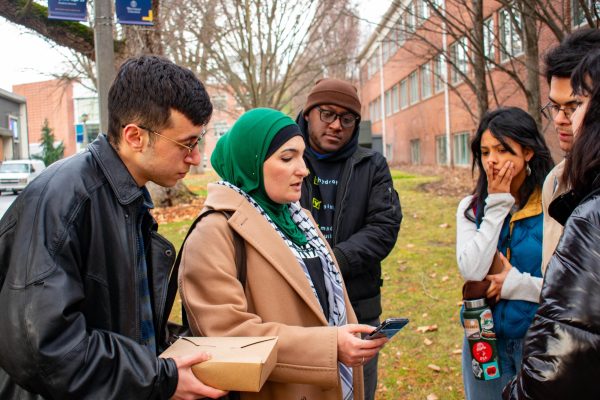Approaching artistic advocacy: An hour with Aisha Fukushima ’09
March 3, 2022
Thirteen years after graduating from Whitman College and being involved in Power and Privilege as a student, Aisha Fukushima returned to campus to kick off this year’s Power and Privilege Symposium.
Fukushima’s session, “Balance, Beats and Breaks,” combined live vocal performances, writing exercises and relaxation techniques in a discussion of the symposium’s theme, “Beyond the Bare Minimum.” Fukushima was one of the students involved in starting the P&P symposium, so she was excited to see how it had changed.
“It took a lot of time, strategizing, and collective effort to make the vision a reality. I’m so happy to see the Symposium continuing to grow and evolve over the years,” Fukushima said.
Director of Conferences, Events and Scheduling Jennifer Casper explained that Aisha has been a hopeful voice on campus both before and after her graduation.
“I had the honor of working with Aisha (as a student intern)… I was thrilled to learn that she’d be joining this year’s P&P symposium and looked forward to attending not only her session but also the kick-off event… Knowing Aisha, I knew it would be great,” Casper said.
For first-year Noelle Texidor, a highlight of the session was the diversity of artistic mediums explored through Fukushima’s presentation.
“I was intrigued by the fact that it would focus on creativity through different strategies like free writing and music,” Texidor said.
Fukushima made a point of centering self-care and grounding in activism by starting both the Kickoff Event and the Thursday session with a breathwork exercise. She encouraged the audience to soften their gaze on the world and turn their focus inward by paying attention to the sensations in the body and the pattern of their breathing.
“I enjoyed finding moments to root into the present moment, and to deepen our practice as changemakers in the world! People’s reflections and offerings were so powerful. It reminds me of how important it is to build collective solidarity on a bedrock of compassionate understanding,” Fukushima said.
After establishing a sense of connection with participants by inviting them to be emotionally vulnerable and share gratitude in the chat, she performed her original music. For first-year Yahir Tzec, the song “Pandemic” was the best part of the session because of its relatability and honesty.
“When I think about activism I usually think about how serious and intimidating activism can be. When I was hearing her talk about it, I got the sense that a lot of it is hopeful and playful as well. Creative writing and music play a big part,” Tzec said.
To engage the audience in imagining a brighter, more equitable future, Fukushima asked the participants to do a free writing exercise about what they imagine the ‘new normal’ to be like. This writing created an opportunity to move beyond unhelpful associations with the loaded terminology of 2020.
“[Fukushima has changed] how I think of the term ‘new normal.’ I’ve associated it with mainly negative things, but it can also be positive,” Texidor said.
Instead, Fukushima called for the audience to imagine how new normal can instead encapsulate how positive change can be brought to the Whitman community and the world at large, setting the tone for the sessions in the second half of the day.
“What that session had me take away and apply to other ones was listening and how Power and Privilege can be interaction,” Tzec said.
Casper had similar sentiments to Tzec and was grateful for the boost Fukushima’s presentation gave.
“With everything going on in the world today, life can feel heavy and overwhelming at times. Aisha’s uplifting message of hope and perseverance gave a much-needed boost,” Casper said.
To find out more about Fukushima’s work, you can visit her website or follow her on social media.






